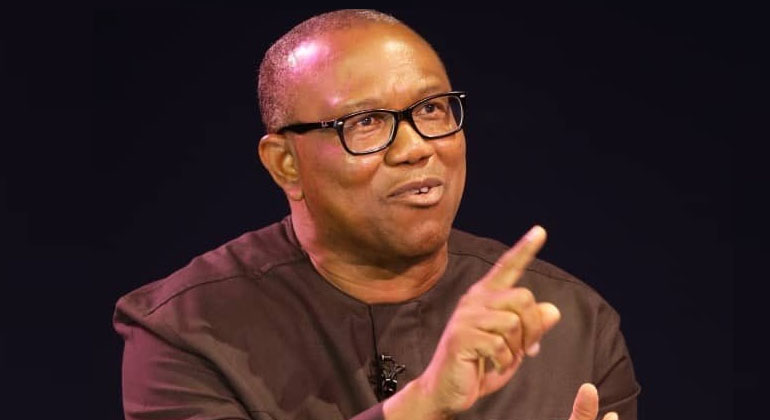There has been a lot of reaction to the ongoing suspension of CBN Governor Sanusi Lamido Sanusi mostly from social network and the press. Whilst some have sounded at best biased (on both sides) some are plain sentimental and lucidly partisan. But more importantly to this blog and what we do is to source what financial and business analyst think of the current situation.
RAZIA KHAN, HEAD OF AFRICA RESEARCH AT STANDARD CHARTERED
The suspension will come as a significant shock to foreign portfolio investors, whose willingness to invest in Nigeria was very much influenced by the transparency and anti-inflation credibility associated with Sanusi’s policies
BIZMARCK REWANE, CHIEF EXECUTIVE OF LAGOS- BASED FINANCIAL DERIVATIVES
Regardless of the merits of the accusations, the reality is that the institution of the CBN will be weakened because of the unusual nature of the way governor has been removed.
KEVIN DALY OF ABERDEEN ASSET MANAGEMENT LONDON
Those allegations are “a joke” since Sanusi has demonstrated the central bank’s commitment to ensuring exchange rate and price stability, said Kevin Daly, a money manager who oversees about $10.5 billion in emerging market and Nigerian debt at Aberdeen Asset Management in London. This episode should remind investors that Nigeria country risk is high,” Daly said in an e-mailed reply to questions yesterday. “One should be wary when you have a weak leadership and a strong-willed central bank governor who is taking on the establishment.”
ALAN CAMERON FCMB GOUP PLC
If the Jonathan administration is willing to discard a safe pair of hands at a time when the currency is being tested anyway, it shows more political motivation than economic awareness,” Alan Cameron, a Nigeria focused economist at FCMB Group Plc, said by phone yesterday from Johannesburg.
SHILAN SHAH CAPITAL ECONOMICS LTD
“The Central Bank of Nigeria was one of the more credible institutions, the one that’s made the biggest strides in building credibility in the past few years, particularly under Sanusi’s governorship,” Shilan Shah, an Africa economist at Capital Economics Ltd., said in a phone interview yesterday from London. “What this will lead to is concern that independence is being eroded, it reflects pretty badly and this has been shown up in markets.”
ANGUS DOWNIE, HEAD OF ECONOMIC RESEARCH, ECOBANK
Sanusi did a fantastic job as governor and it will be very difficult to find someone that can continue his line of effort in restructuring the banking sector and strengthening monetary policy to the next phase. He was due to step down in June but when something unexpected like this happens it does raise concerns about what is happening with the direction of policy in Nigeria.
The immediate reaction to Sanusi’s dismissal is a knee jerk reaction. This immediate fall in the naira would be expected in any emerging market or frontier market. Fundamentally there’s no reason for the naira to fall further. You’ve got a very safe pair of hands that are taking over in the immediate period, Sarah Alade. In terms of the economic policy agenda, that’s her remit. She’s the deputy governor responsible for economic policy.”
ALAN CAMERON, ECONOMIST AT NIGERIAN STOCKBROKER CSL
It’s not so much what it does to the CBN (Central Bank of Nigeria), which we believe had a strong institutional foundation and skilled leaders, but what it says about the Presidency itself. If the Jonathan administration is willing to discard a safe pair of hands at a time when the currency is being tested anyway, it shows more political motivation than economic awareness. Speaking from the perspective of international investors, this is likely to go down badly.”
MELISSA VERREYNE, ECONOMIST, NKC ECONOMISTS IN CAPE TOWN
This is very worring for the central bank’s independence, and creates uncertainty about the future monetary policy direction. The strange allegations made against Mr Sanusi, and the fact that the government was not content with simply letting his term expire, appear to be aimed at sending a warning to outspoken central bank officials. The ability of the central bank to criticise fiscal policy and the remittance of oil revenue is important, as it improves the accountability of the public sector. Any reversal of this will jeopardise the central bank’s ability to maintain price and exchange rate stability, due to the pressure on foreign exchange reserves caused by corruption and government withdrawals.
YVONNE MHANGO, AFRICA ANALYST, RENCAP
His suspension does raise concern among investors about the ability to sustain the naira at present levels. We will see more pressure on the currency between now and June, and more weakness than we had anticipated prior to this news. You’re going to get a much more conservative CBN governor. The impression from the statement is that he (Jonathan) thought the governor had gone above and beyond his mandate. It suggests that whoever he selects going forward will toe the line and be more conservative.
SAMIR GADIO, EMERGING MARKET STRATEGIST, STANDARD BANK
This is a disruptive move which indicates that the CBN has de facto lost much of its independence. Clearly it is driven by political motives given Sanusi’s vocal criticism of oil revenue leakages and the opaque fiscal system in Nigeria. If anything, this development will compound upside risks to USD/NGN by precipitating the foreign exit and a negative domestic positioning against the naira. Foreign investors are likely to be active sellers of Nigerian assets in coming days subject to market liquidity constraints.








I see a funny market crash coming. I think it has started in the banking sector. Tighten your seat belt as this journey will be rough.
Long term investors have nothing to fear.